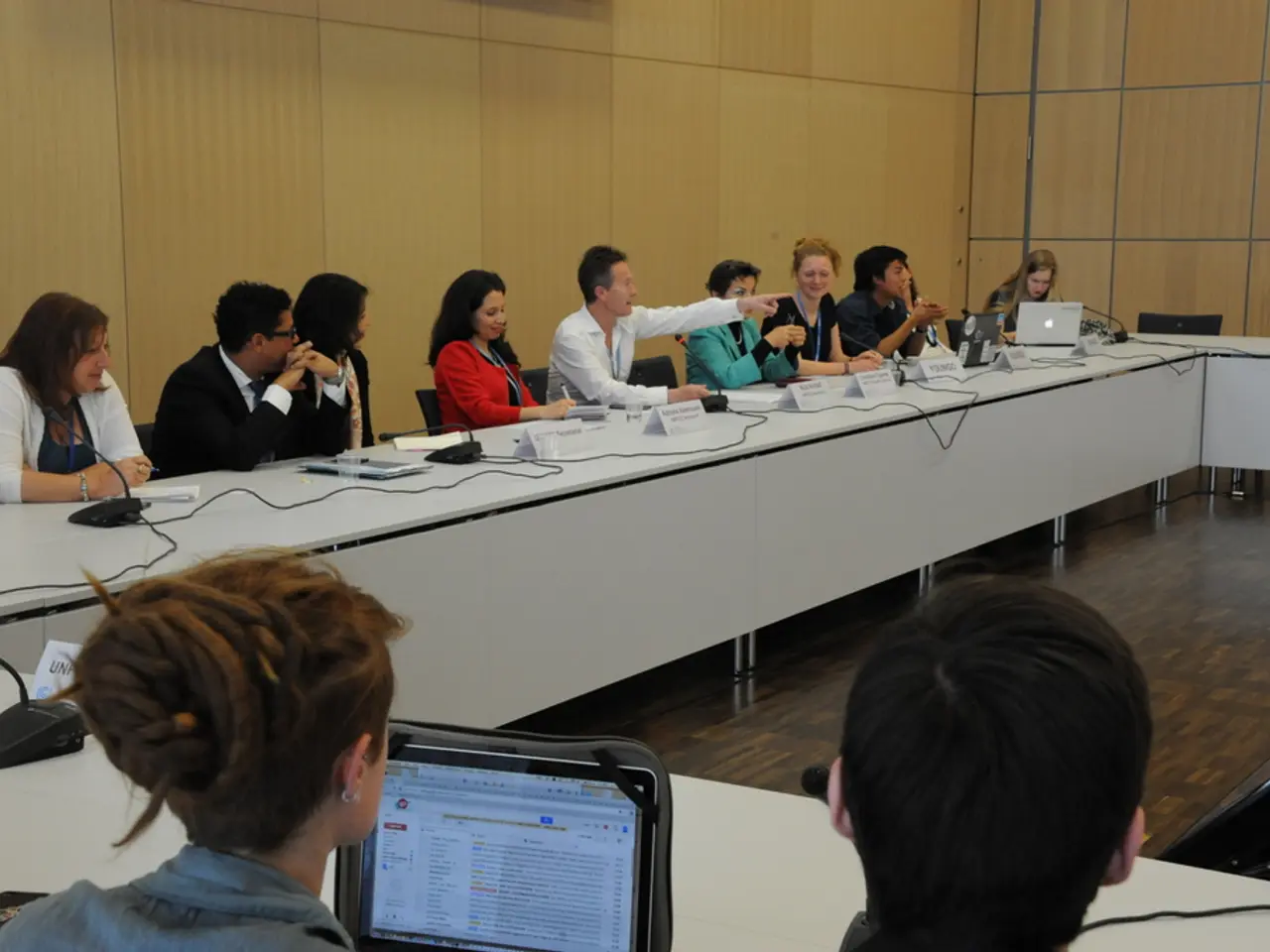Central Bank of Pakistan to Initiate Digital Currency Trial, Reveals Governor
In a significant move towards digital financial innovation, Pakistan is making strides in the adoption of virtual assets and the development of a central bank digital currency (CBDC). The Pakistan Crypto Council, a government-backed organization, has been established to drive this transformation [1].
One of the key figures driving this change is Jameel Ahmad, the governor of the State Bank of Pakistan. Ahmad expressed confidence that after completing the International Monetary Fund (IMF) programme, Pakistan may not require an immediate follow-up [2]. He also stated that Pakistan is not overly exposed to dollar weakness, with foreign debt mostly dollar-denominated and only 13% comprised of Eurobonds or commercial loans [3].
The central bank is preparing to launch a pilot for a CBDC as part of its broader strategy to modernize the financial system and integrate digital financial services [3][4]. The State Bank of Pakistan has already appointed Binance founder Changpeng Zhao as a strategic adviser to the Pakistan Crypto Council [1].
The government has formally enacted the Virtual Assets Act, 2025, which establishes the Pakistan Virtual Asset Regulatory Authority (PVARA). This autonomous body is responsible for licensing and overseeing entities dealing in virtual assets, ensuring compliance with international standards like those of the Financial Action Task Force (FATF) [2][4].
The new law provides a comprehensive framework for regulating virtual assets, aiming to ensure transparency, compliance, financial integrity, and prevention of illicit activities. This framework aligns Pakistan with global peers that have introduced similar regulatory measures for digital assets [2][3].
The central bank is finalising legislation to regulate virtual assets. Governor Ahmad stated that the central bank will continue to maintain a tight policy stance to stabilize inflation within a 5-7% medium-term target [2]. Reserves in Pakistan have risen to $14.5 billion from under $3 billion two years ago [5].
Pakistan's move to launch a digital currency follows similar steps by regulators in China, India, Nigeria, and several Gulf states [5]. The central bank's mandate remains ensuring smooth interbank market functioning and maintaining ample foreign exchange for trade financing [6].
Over the past year, Pakistan has reduced its benchmark rate from 22% to 11%, and inflation has fallen sharply from 38% in May 2023 to 3.2% in June, averaging 4.5% in the 2025 fiscal year just ended, a nine-year low [4]. Ahmad, however, was asked about financing plans for upcoming military equipment purchases, particularly imports from China, and responded that he was not aware of such plans [7].
In conclusion, Pakistan is positioning itself among countries leading in digital financial innovation and oversight. The central bank's initiatives, coupled with the enactment of the Virtual Assets Act, 2025, are paving the way for a more integrated and modern financial system in the country.
- As the government delves into digital financial innovation, the real estate sector might witness an emergence of virtual asset-based transactions, given the adoption of virtual assets and central bank digital currency (CBDC) in Pakistan.
- With the launch of a CBDC pilot and the appointment of Changpeng Zhao as a strategic adviser to the Pakistan Crypto Council, the sports industry may soon explore blockchain technology for fan engagement and monetization of virtual items.
- As the Virtual Assets Act, 2025, ensures transparency and financial integrity, technology companies might find Pakistan an attractive prospect for investments in digital finance, corroborating with the country's efforts to modernize its financial system and news outlets will report on these developments in their general-news sections.




